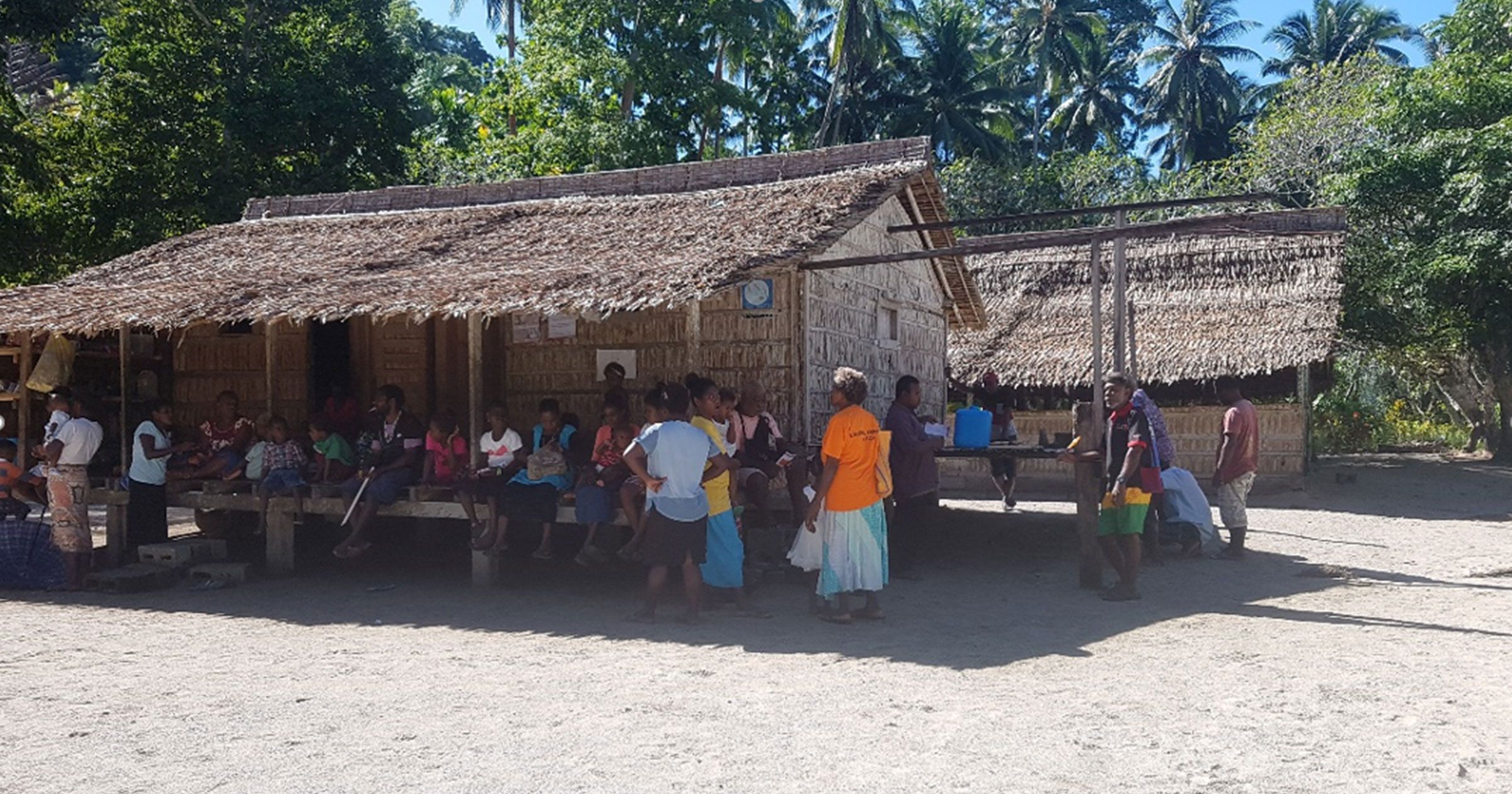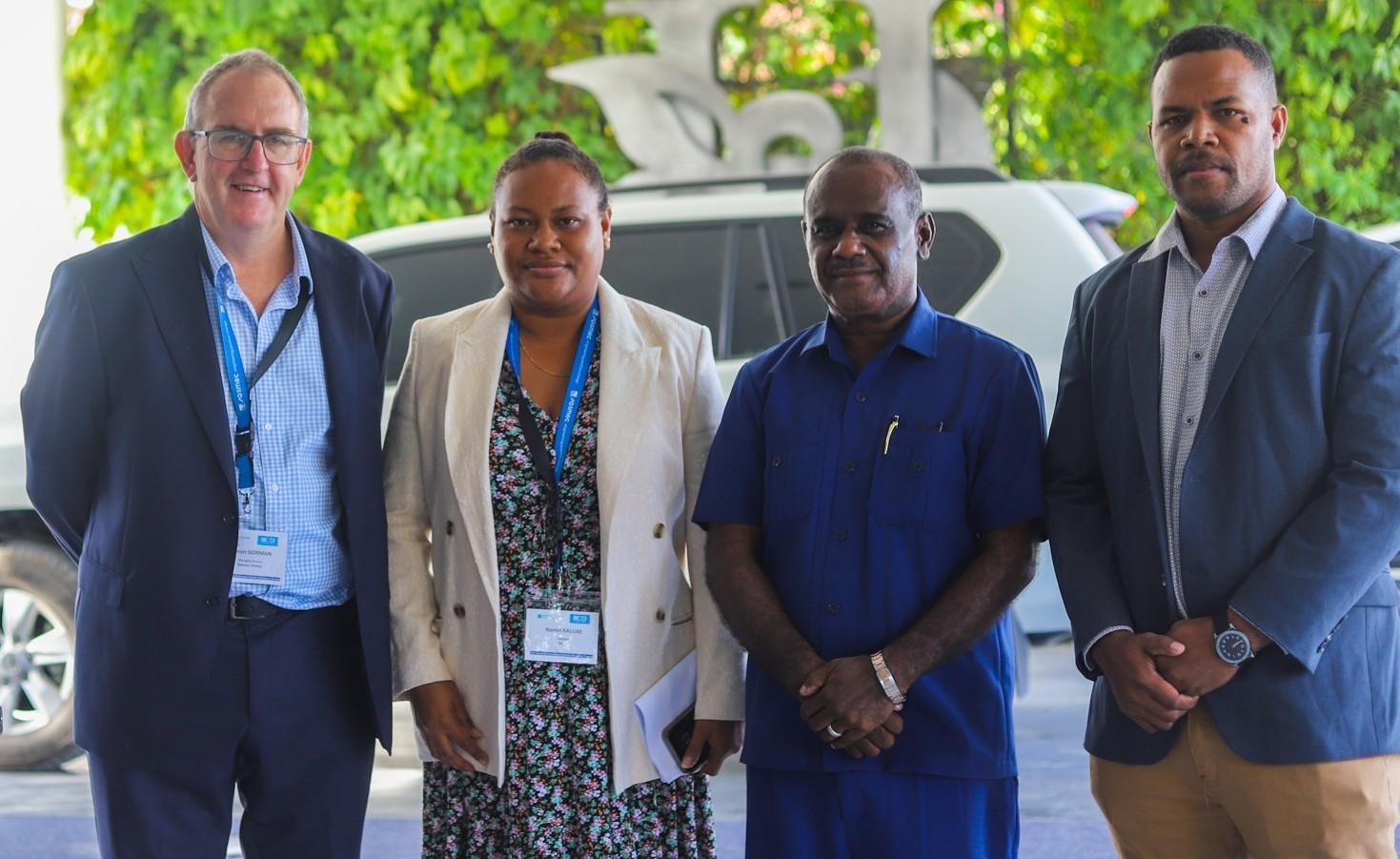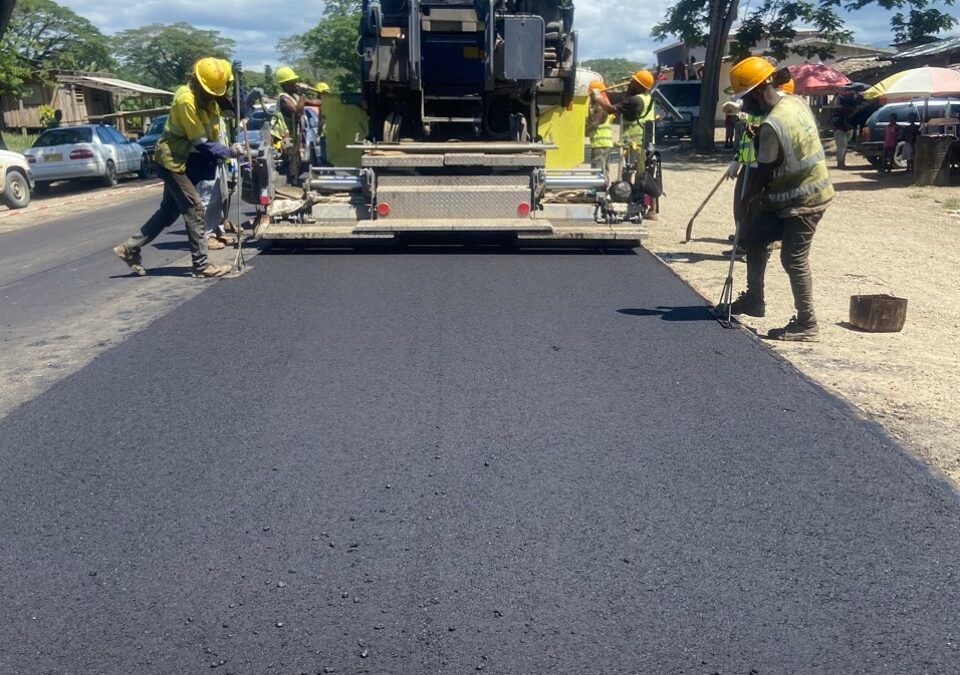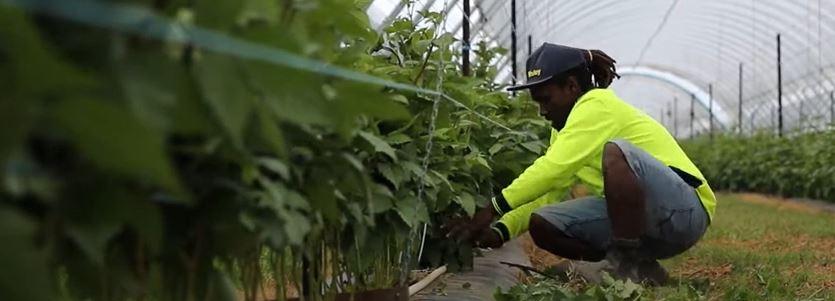

Solomon Islands Prime Minister Jeremiah Manele urges business and government leaders to prioritise investment and economic growth in the Pacific.
Photo/Solomon Islands government
Support growth not just security, PM of Solomon Islands urges Australia
Jeremiah Manele warns Pacific nations cannot wait for development while regional powers focus on strategic competition.



Moana Pasifika end Lautoka curse to win 'Battle of the Pacific'


A.R.T sets new Pacific music pace with ‘First Thursday’ releases



Moana Pasifika end Lautoka curse to win 'Battle of the Pacific'


A.R.T sets new Pacific music pace with ‘First Thursday’ releases
Solomon Islands Prime Minister Jeremiah Manele has used a major business summit in Brisbane this week to call for stronger economic ties with Australia, saying the relationship must focus on jobs and development, not only security.
He told Australian business leaders that the Solomon Islands is ready for new partnerships that can lift incomes and support long-term stability across the region.
Manele says the Solomon Islands has strong potential in sectors like mining, agriculture and forestry, but needs investors who are willing to work with local communities and support sustainable growth.
He says now is the right time for Australia to play a bigger role in helping the islands build infrastructure, expand industries and create opportunities for young people.
“The global economy is shifting. New markets are emerging,” Manele told the Australia–Solomon Islands Business Forum on Tuesday. “It is through partnerships with businesses that we will create jobs, build firms and generate prosperity.”
Manele says the Solomon Islands wants stronger partnerships in mining, agriculture, forestry and construction, adding: “The government cannot achieve its transformational agenda alone.”

Communities across the Solomon Islands stand to benefit from investment in infrastructure, jobs and local development. Photo/Water For Women Fund
A push for investment but what’s missing?
Manele’s speech focused heavily on economic growth, including the need to “revitalise our economy” and “strengthen connectivity".
But he avoided two of the most sensitive issues between Australia and the Solomon Islands:
China’s growing role in the country, including the 2022 security agreement, and,
Climate change, which Pacific leaders consistently call the region’s “single biggest threat”.
Pacific analysts say leaving out climate and China may have been deliberate.

Jeremiah Manele and other delegates at this week's Australa-Solomon Islands Business Forum in Brisbane. Photo/In-depth Solomons
Security still matters for Australia
At the summit, Australian Speaker of the House, Milton Dick, gently pushed for stronger defence ties, saying Canberra wants to work closely with the Solomon Islands on regional stability.
“Economic prosperity and security go hand in hand,” Dick told the gathering. “Australia is a partner the Solomons can count on.”
His comments reflect Australia’s growing concern over China’s influence in the Pacific and its slow progress in securing a defence treaty with Honiara.
‘Investment must not replace climate action’
Some Pacific civil society groups say the Solomon Islands’ focus on investment cannot come at the cost of ignoring climate concerns.
A Pacific climate advocate, Josephine Teakara, recently told journalists that investment is welcome, but climate is the region's number one threat.
Environmentalists say that if a Solomon Islands leader stands in Australia and does not mention climate change once, that’s worrying. "Rising seas, disasters, and food security are affecting families now,” one advocate argues.

Australian-backed development projects are helping to connect Solomon Islands’ remote areas, supporting economic growth and opportunity. Photo/Solomon Islands govt
China remains the silent tension
While Manele did not mention China in his speech, Honiara's partnerships with Beijing remain a major concern for Canberra.
Dr Transform Aqorau, a Solomon Islands governance expert, has stated that the region is watching carefully. “China is now the Solomons’ biggest development partner after Australia. Any talk about investment must be honest about that reality.”
Aqorau says Australia needs to respond to the Pacific’s development priorities if it wants to remain the “partner of choice".
Jobs and mobility
Manele highlighted the Pacific Australia Labour Mobility (PALM) scheme as a success story, calling it “mutually beneficial” for both countries.
But Pacific labour researcher Dr Anna Nau says governments must balance the benefits with the social cost.
“Remittances help families, yes, but communities are losing young workers for years at a time. More local jobs in the Solomons would reduce that pressure.”
Watch Gordon Denty, chair of the Chamber of Commerce and Industry board, address the Australi-Solomon Islands business summit below.
‘Show us real development’
Ruth Maetala, a Solomon Islands civil society leader, says people want to see investment lead to real change.
“Our villages need clean water, clinics, and reliable transport. Investors talk big, but not all projects deliver. Communities want transparency and long-term benefit, not just logging deals or mining licences.”
Australia is the Solomon Islands’ largest aid donor and one of its biggest trade partners, alongside China.
Analysts say both countries must manage this relationship carefully.
“Australia wants defence ties; Solomon Islands wants economic growth,” Dr Tess Newton-Cain from the Griffith Asia Institute says. “Both matter, but the Pacific’s development needs cannot be pushed aside because of great-power competition.”

Pacific workers participating in labour mobility programmes help bridge gaps between Solomon Islands communities and Australia’s workforce. Photo/PALM scheme
‘We need partners who believe in our future’
Closing his speech, Manele stated that the Solomon Islands is ready for Australian investors.
“There is a moment of opportunity before us. We need partners who believe in our future.”
For the Solomon Islands, the message is clear: economic development and investment must go hand in hand with regional security.
Prime Minister Manele says his country is ready to partner with Australia and other Pacific neighbours to build jobs, strengthen infrastructure, and ensure that growth benefits local communities, proving that the islands’ future depends as much on opportunity as on geopolitics.